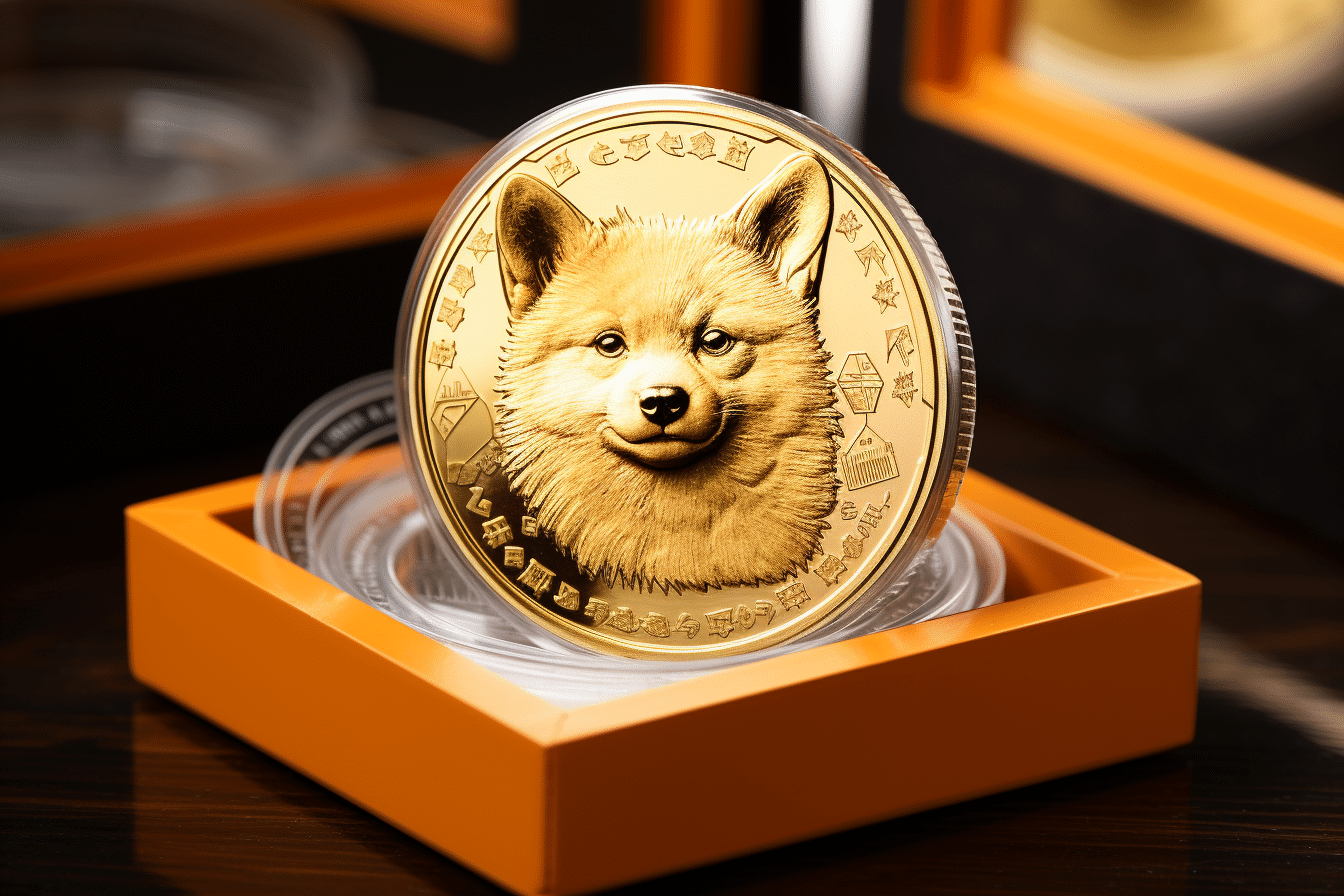Altcoins
How to Build a Dogecoin Mining Rig: Beginner’s Guide (2024)
Ready to mine Dogecoin in 2024? Follow our beginner’s guide and learn how to build a Dogecoin mining rig and start earning a lucrative income by mining today!
Published
1 year agoon

Dogecoin, a digital currency that made its commencement as a joke but has since captured the imagination and investment of the public, offers a unique opportunity for enthusiasts to dive into the mining scene. Many people showcase in building successful Dogecoin mining rigs and making lucrative profits.
This guide is crafted to walk you through the basics of Dogecoin mining, from understanding what mining is to assembling your very own mining rig. Learn how to build a Dogecoin mining rig effortlessly with our step-by-step instructions
How to Build a Dogecoin Mining Rig: A Step-by-Step Guide

Understanding how to build a Dogecoin mining rig
Building a Dogecoin mining rig involves careful planning, acquiring the appropriate hardware, and configuring software to connect to the Dogecoin network. Here’s an extended guide on how to get started, with insights drawn from multiple sources.
Step 1: Understand your hardware options
To mine Dogecoin effectively, you’ll primarily need specialized hardware known as Application-Specific Integrated Circuit (ASIC) miners, designed for mining Scrypt-based cryptocurrencies like Dogecoin.
These devices are optimized to perform hashing functions efficiently, making them the most effective option for Dogecoin mining. While ASIC miners are more expensive and can be harder to obtain, they significantly outperform Graphics Processing Units (GPUs) in mining efficiency.
For those looking to start with a smaller investment, GPU mining remains an option, though it’s less profitable and more suited to hobbyists or those looking to learn about cryptocurrency mining.
Step 2: Choose the right mining software
Once you have your hardware, you’ll need to install mining software that allows your hardware to communicate with the Dogecoin network. Popular options include CGMiner and EasyMiner, both of which support Scrypt mining.
This software plays a significant part in managing your mining operation, including connecting to a mining pool, optimizing your hardware’s performance, and monitoring your mining activity.
Selecting user-friendly software that is compatible with your hardware will simplify the setup process and help you start mining more quickly.
Top Dogecoin (DOGE) Mining Software
So, you’ve chosen your hardware for mining Dogecoin, whether it’s ASICs, GPUs, or CPUs. Now, let’s take a look at some of the top Dogecoin mining software options. Best of all, most of them are completely free:
1) CGminer:
- This is a widely used mining software known for its ease of use.
- It supports multiple GPUs and ASICs and provides detailed mining statistics.
2) BFGMiner:
- BFGMiner is a modular ASIC/FPGA miner written in C.
- It offers dynamic clocking, monitoring, and remote interface capabilities.
- This software supports multiple GPUs and ASICs and is integrated into various popular mining pools.
3) MultiMiner:
- MultiMiner is an all-in-one GUI that allows the mining of multiple cryptocurrencies, including Dogecoin.
- It’s easy to use and integrates with many popular mining pools.
4) EasyMiner:
- EasyMiner is a free graphical frontend suitable for beginners.
- It supports the mining of Bitcoin, Litecoin, Dogecoin, and more.
- EasyMiner offers two setups: Classic and Moneymaker modes, supporting Stratum and sha256 mining protocols.
5) Awesome Miner:
- This Windows application manages and monitors Bitcoin, Ethereum, Litecoin, and other cryptocurrency mining.
- It’s user-friendly, offers remote management capabilities, and provides advanced statistics.
6) GUIMiner-scrypt:
- GUIMiner-scrypt is a GUI-based miner for Windows, supporting multiple cryptocurrencies including Dogecoin.
- It’s easy to use, supports multiple GPUs and ASICs, and integrates with popular mining pools.
These software options provide a range of features and functionalities to suit various mining needs, whether you’re a beginner or an experienced miner.
Step 3: Join a mining pool
Solo mining Dogecoin is challenging due to the network’s mining difficulty. Joining a mining pool, where miners combine their computational power to improve the chances of successfully mining blocks, is recommended. This approach offers more consistent payouts, though rewards are shared among pool members.
Research to find a reputable mining pool that suits your needs, considering factors like pool fees, payout frequency, and the pool’s size. Some popular Dogecoin mining pools include Aikapool, Multipool, and Prohashing.
Dogecoin Mining Pools
Mining pools offer a collective approach to mining Dogecoins, allowing miners to earn rewards more quickly compared to solo mining. Here are some of the top Dogecoin mining pools:
- DogeChain
- WeMineDogecoins
- Prohashing
- DogeMiningPool
- MinePools
- Muchpool
Before joining a mining pool, it’s essential to review the service and check for any associated fees. Once you’ve created your mining pool account and set up your mining equipment, you’ll be able to monitor your earnings and payouts through your pool’s account settings.
This collective effort enables miners to maximize their earning potential while contributing to the Dogecoin network.
Step 4: Secure a Dogecoin wallet
Before you begin mining, you’ll need a Dogecoin wallet to receive and store your mining rewards. There are various types of wallets available, including hardware wallets (for maximum security), desktop wallets, mobile wallets, and online wallets.
Each has its advantages and potential security considerations. Choosing a secure and convenient wallet will ensure that your mined Dogecoins are safe and accessible.
Exploring how to earn profits from building a Dogecoin mining rig
Step 5: Configure your mining rig
After setting up your mining hardware and software and choosing a mining pool, it’s time to configure your mining rig. This involves connecting your ASIC miners to your computer and configuring the mining software with your pool’s information and your wallet address.
Each mining pool has specific requirements for setting up your miner, so refer to the pool’s setup instructions. Monitoring tools can also be helpful to keep track of your rig’s performance and make adjustments as needed.
Step 6: Start mining and monitor your rig
With everything set up, you can start mining Dogecoin. Keep a close eye on your rig’s performance, temperature, and overall efficiency. Regular monitoring will help you optimize your setup, identify any issues early, and ensure your mining operation runs smoothly.
Adjustments may be needed to maximize profitability and maintain the longevity of your mining hardware.
Why Dogecoin mining can be lucrative
Dogecoin mining can be lucrative for several reasons, especially when approached with a strategic mindset and an understanding of the cryptocurrency market dynamics. Here’s an overview of why engaging in Dogecoin mining might be a profitable endeavor:
1. Increasing popularity and acceptance
Dogecoin has a large, passionate community that supports the currency, contributing to its stability and growth potential.
Also, there’s an increasing number of businesses and online merchants accepting Dogecoin as a form of payment, enhancing its usability and demand.
2. Lower entry barrier
Dogecoin typically has a lower entry cost compared to more established cryptocurrencies like Bitcoin, making it accessible to more people interested in mining.
Initially designed to be more accessible to the average person, Dogecoin mining doesn’t require as specialized and expensive hardware as some other cryptocurrencies, although this has evolved.
3. Potential for appreciation
While the cryptocurrency market is known for its volatility, this also means there’s potential for significant appreciation in value. Dogecoin has experienced dramatic price increases in the past, which have benefited miners.
Celebrity endorsements and social media can influence Dogecoin’s price, creating opportunities for miners to capitalize on sudden increases in value.
4. Reward mechanism
Miners receive rewards for completing blocks of verified transactions that have been added to the blockchain. Dogecoin’s reward system provides a set number of Dogecoins per block, offering a direct incentive for mining activities.
Miners also collect transaction fees as part of the reward, adding another revenue stream.
Unveiling how Dogecoin mining rigs will be lucrative
How to securely transfer and store your mined Dogecoin
After choosing the appropriate wallet, securely transferring and storing your Dogecoin involves the following steps:
- Secure transfer: Ensure you’re sending your Dogecoin to the correct address. Double-check the address before confirming the transaction to avoid sending it to the wrong place.
- Backup your wallet: Regularly back up your wallet, especially if you’re using a software wallet. This could involve writing down key phrases or copying wallet files to a secure location.
- Use strong passwords and two-factor authentication (2FA): Protect your wallets with strong, unique passwords and enable 2FA if available.
- Keep your private keys private: Never share your private keys or passphrase with anyone. This is the only way to access your Dogecoin, and anyone who has it can control your funds.
Troubleshooting Tips
Here are some common mining problems and their solutions:
1) Connection Failures:
If your mining software fails to connect, double-check your pool details. Even a small mistake in the server address can cause issues. If that’s not the problem, try restarting your mining software or device, which often resolves connectivity issues.
2) A Drop in Mining Speed:
If you notice a decline in mining speed, ensure no resource-heavy applications are running concurrently, as they can hog your system’s resources. Additionally, updating GPU drivers is crucial, as outdated drivers can hamper mining efficiency.
3) Transaction Issues:
If you’re not receiving Dogecoin in your wallet despite mining, it might be because some pools only pay out once you reach a specific minimum threshold. Confirm that you’ve entered the correct wallet address in your mining software, as errors here can result in missed payments.
4) Hardware Overheating:
Mining can strain hardware, leading to overheating. Monitor your system’s temperature closely and consider using a program to track hardware health.
Improve airflow around your mining device or add extra fans to mitigate overheating. For serious miners, investing in dedicated cooling solutions is advisable.
Breakdown of potential costs in Dogecoin mining
The cost of mining Dogecoin primarily includes the price of the mining hardware and the electricity consumption. Mining hardware can vary significantly in price, depending on the power and efficiency of the device.
For instance, prices for ASIC miners, which are the most effective for Dogecoin mining, can range from around $1,090 for a Goldshell Mini DOGE Pro to $10,999 for a Goldshell LT5. The electricity cost depends on the power consumption of your mining device and the electricity rates in your area.
For example, a mining setup with a hash rate of 9,500 MH/s consuming 3,425 watts of power would incur different costs based on local electricity rates.
Navigating the future of Dogecoin mining
Conclusion
While Dogecoin mining can be lucrative, it’s crucial to approach it with a clear understanding of the costs involved, including hardware, electricity, and time.
Building your own Dogecoin mining rig can be helpful in such scenarios. Potential miners should also consider the volatility of the cryptocurrency market and the fact that profitability can change rapidly.
Nevertheless, for those willing to invest the necessary resources and effort, Dogecoin mining offers a unique combination of financial opportunity, community involvement, and access to the expanding world of digital currencies.
